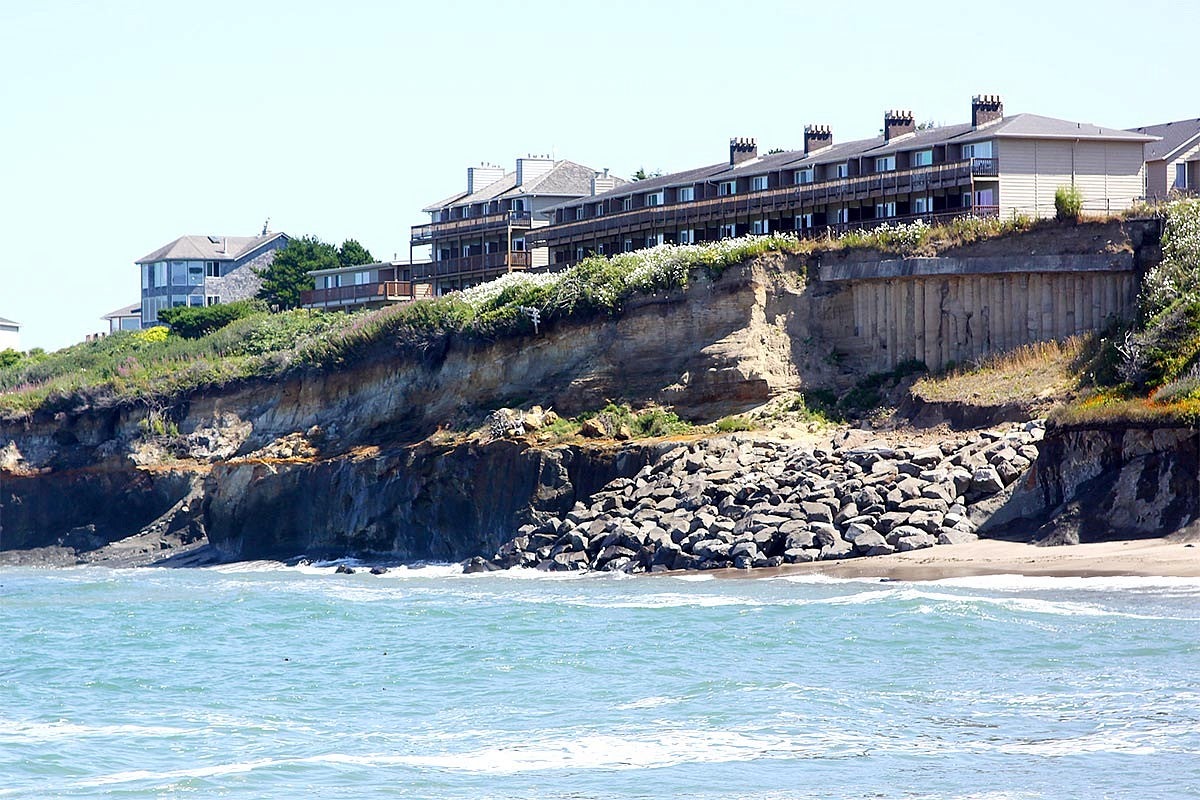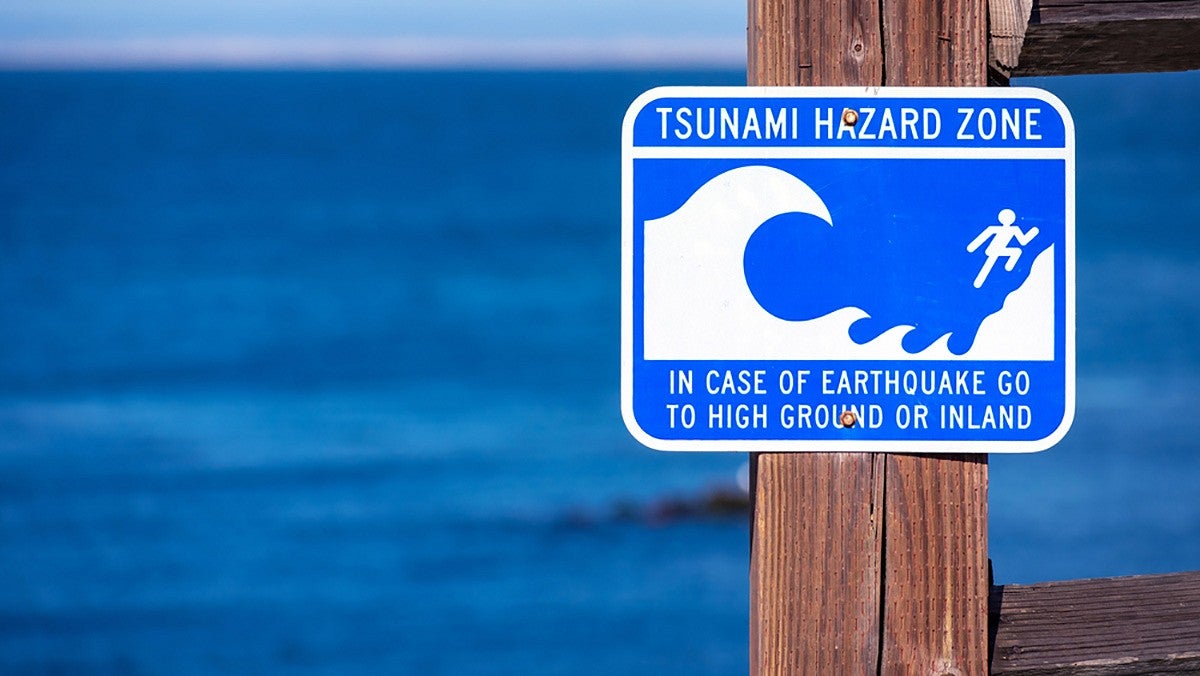
The National Science Foundation is funding the Cascadia Coastlines and People Hazards Research Hub with a five-year research grant just shy of $19 million. The Cascadia hub will focus on two broad areas of research: advancing understanding of the risks of Cascadia Subduction Zone earthquakes and other chronic and acute geological hazards to coastal regions; and reducing disaster risk through comprehensive assessment, mitigation, and adaptation planning and policymaking.
“This grant brings immense opportunities to work with communities from Northern California to the Canadian border coastline, to think strategically and in systemic ways to expand the types of knowledge that is included when planning for climate change,” said José W. Meléndez, a lead principal investigator for the hub and an assistant professor in the School of Planning, Public Policy and Management. “We hope over the lifespan of the project we move jurisdictions toward more inclusive practices for members from underrepresented communities that go beyond outreach to having a seat in decision-making bodies across Cascadia with risk-management responsibilities.”
In addition to the University of Oregon, partner institutions, governments, and agencies include Oregon State University, University of Washington, Washington State University, Humboldt State University, Georgia Tech, Arizona State University, Swinomish Indian Tribal Community, Oregon Sea Grant, Washington Sea Grant, and the U.S. Geological Survey.
“This grant brings immense opportunities to work with communities from Northern California to the Canadian border coastline."
—José W. Meléndez
The Pacific Northwest coastline is at significant risk of earthquakes from the Cascadia Subduction Zone, which stretches nearly 700 miles along the coast from Cape Mendocino in California to Oregon, Washington, and Vancouver Island in Canada. In addition to this acute threat, the region also faces chronic challenges due to climate change including coastal erosion, regional flooding, and sea level rise.
The initial award for the Cascadia Coastlines and Peoples Hazards Research Hub, or Cascadia CoPes Hub, is for $7.2 million with the total request over five years at nearly $18.9 million. The hub will provide an avenue for coordinating research in Pacific Northwest coastal communities among numerous academic and government organizations to inform and enable integrated hazard assessment, mitigation, and adaptation in collaboration with local communities.
Meléndez will work alongside the other principal investigator, Michael Howard of the Institute for Policy Research and Engagement (IPRE). The Cascadia CoPes hub will inform and enable comprehensive planning, policy making, and engineering through targeted fundamental scientific advances and modeling co-produced in sustained collaboration with the coastal communities. A comprehensive, inclusive, coproduced approach to advancing hazard assessment and mitigation will increase coastal communities’ adaptive capacity and broaden participation in achieving equitable and just disaster risk reduction.

Researchers also plan to provide training for the next generation of coastal hazards scientists and leaders, with an emphasis on reaching underrepresented groups. The Cascadia Coastal Hazards and Resilience Training, Education and Research, or CHARTER, program will offer formal and informal training, education and hazards science research across the middle school, high school, undergraduate, graduate, and postdoctoral levels.
Through three programmatic areas, Cascadia CHARTER aims to help build, strengthen, and reinforce the science identities and stretch the STEAM pipeline of underrepresented populations by expanding opportunities for participation. Initial recruitment of CHARTER fellows will start with undergraduate majors in PPPM who are traditionally underrepresented in NSF funded careers (science, technology, and engineering). However, students in all academic disciplines interested in participating in social science research will be eligible. Participating fellows will receive enhanced curriculum, training, and mentoring over the lifespan of the grant.
Meléndez will also be a lead co-designer of the Coastal Leadership Institute. Three Coastal Leadership Institutes will be held in each of years 3–5 in hub collaboratories. With the overarching goal of building adaptive capacity through an expanded network of collaborators and resources, the institutes will create learning environments that facilitate two-way teaching and learning. Co-created curriculum learning modules informed by hub research will be offered as a series of workshops. Designed to bridge the disconnects between coastal hazard sciences, decision-making, and the cultures and values of communities affected by hazards, the institutes will start in year three to align curriculum co-development with hub research findings and to respond to community concerns identified during the first two years of research.
Howard and IPRE will be involved in supporting this work, in addition to running a Community Planning Workshop (CPW) with Community and Regional Planning graduate students in year four to support the work of the Coastal Leadership Institute. Howard said CPW will work with collaboratories to accomplish a variety of potential projects guided by local interests, including surveying assessments of community adaptive capacity and methods of communicating risk and uncertainty.
“The aim of CPW’s efforts is to broaden community-wide resilience by examining and balancing social and economic tradeoffs when determining feasible and acceptable adaptation strategies.” Michael Howard. “CPW will test the decision-support tool and evaluate the extent to which results address community questions, incorporate world views, and produce equitable adaptation strategies.”
The hub is part of the National Science Foundation’s Coastlines and People Program, an effort to help coastal communities across the U.S. become more resilient in the face of mounting environmental pressure. Nearly 40% of the U.S population lives within a coastal county. More than $29 million in grants were awarded to five proposals for the fiscal year 2021. The University of Oregon’s award is one of two “large-scale” hub awards.
